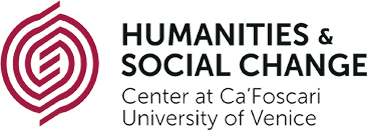Ursula Clayton, ‘Base Tick, call’st thou me host?’: An Introduction to Shakespeare’s Parasites,
In collaborazione con/In collaboration with ECLS Seminars of Warwick University (ENG)
18 May 2021, 5.00 p.m. CEST, please email hsc@unive.it to receive link
Abstract
This is the paradox of the parasite. It is very simple but has great import. The parasite is the essence of relation
Michel Serres
Defined as the ‘essence of relation’, yet ‘loathed and … detested’ by those who have experienced its insidious symbiosis first hand, the parasite is found hidden at the intersection between early modern self and other (Tim. 3.6.94-5). Since their arrival in the comedies and satires of classical antiquity, parasites have been identified by their quick wit, insatiable appetite, self-interest, and their expertise in the art of deception and transformation. In early modernity, parasites are understood to be generated from either the quagmire of unfixed social origins, or the rotting matter of a humoral ecology which inextricably links the early modern body to its earthly surround. Parasites are lice, fleas and worms, and they are also flattering courtiers, freeloading soldiers, and – due to the unavoidability of literary patronage – poets. This paper will situate William Shakespeare’s use of parasitic trope in its wider context, in order to demonstrate how Shakespeare’s poems and plays create a conceptual web of exchange between scientific and literary discourses in order to explore what can happen when humans relate to one another.
Ursula Clayton is Teaching Fellow in the Department of English and Comparative Literary Studies of Warwick University, where she also teaches on the English and Comparative Literary Studies program. Full speaker bio here
ONLINE, May 18th, 5.00 p.m. CEST
To receive the Zoom link, please email hsc@unive.it
This event is in English, part of Environmental Humanities Seminar and Lecture Series – V
